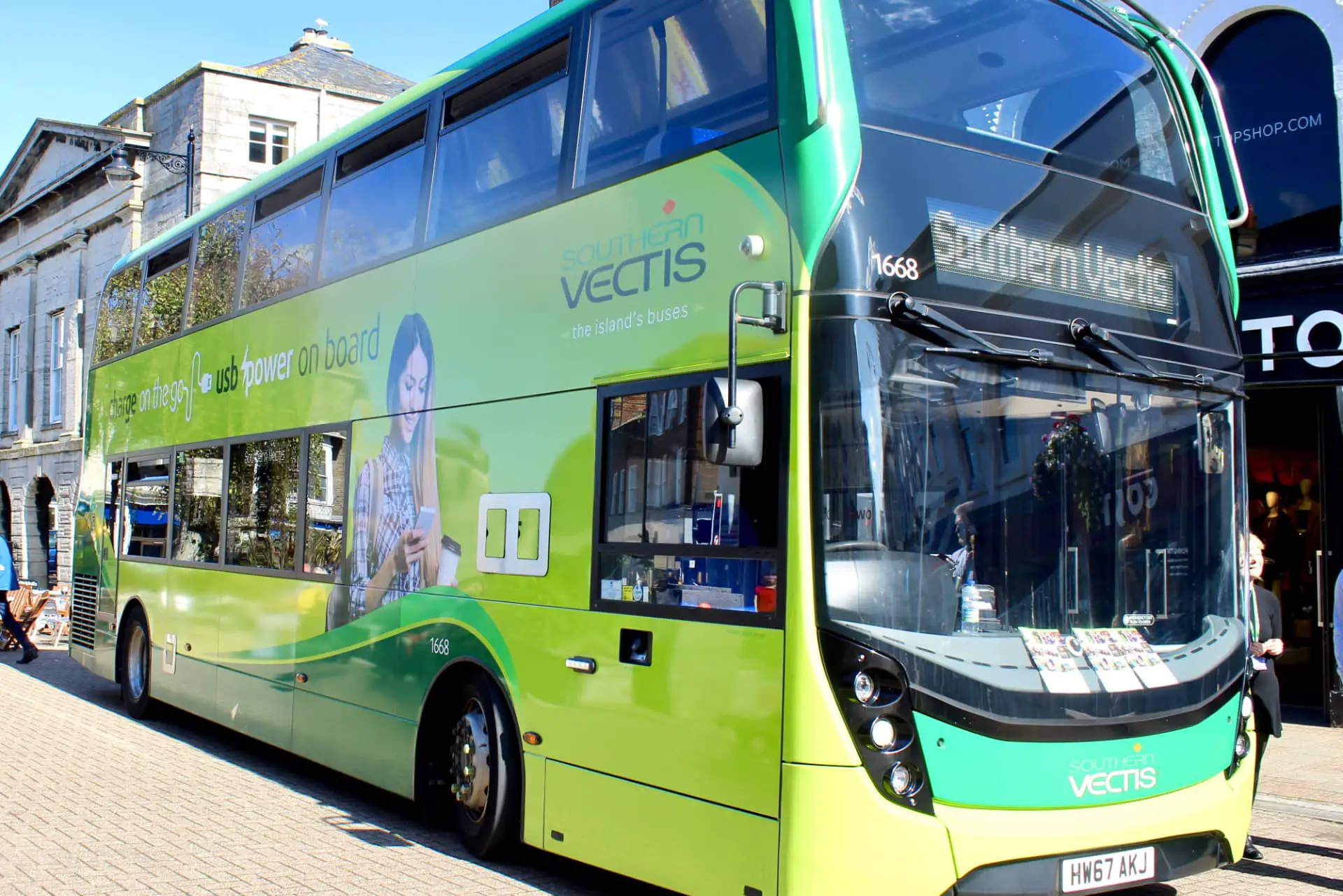Improvements to the Isle of Wight’s bus service will be looked for, but not to the detriment of taxi drivers.
The improvements will be part of the Bus Back Better strategy,
Partnership is ‘once in a generation opportunity’
In an enhanced partnership with main bus operator Southern Vectis (SV), the authority has created a Bus Service Improvement Plan (BSIP) in line with the government’s efforts to get more people using the buses.
The partnership has been described as a ‘once in a generation opportunity’ and will help the authority bid for a part of £3 billion funding to improve public transport.
SV wish list
As part of the BSIP, Southern Vectis created a list of 116 things it would like to see happen to improve the service.
This included more bus lanes, reduced journey times and cheaper fares, but also a bus lane running around Coppins Bridge — a hope which has already been quashed by the councillor in charge.
Taxi drivers not consulted
Concerns were raised at the meeting, over Southern Vectis’s proposals by Desmond White, chair of the Isle of Wight Taxi Provider Association, who said they had not been consulted.
Mr White said in some instances there would be no place for taxis to go if Southern Vectis got its way.
He said some changes are already affecting taxis, such as removal of some on-street parking, so they wanted a seat at the table to know what is going on and to have their voices heard.
Jordan: No plan to deprive taxi operators
Cllr Phil Jordan, cabinet member for infrastructure and transport, said the council very much valued what taxi drivers do.
Cllr Jordan said it was just a list, nothing more than that, and they had not even started discussions with Southern Vectis, but it was not a plan to deprive taxi operators.
He said,
“What we won’t be doing is putting a bus lane around Coppins Bridge. We will probably rebuild it before that is ever going to happen.”
Some points of agreement
The council agreed with some items on Southern Vectis’s wishlist and used it to influence 36 targets in the BSIP, addressing some of the service’s weaknesses, including:
- Reducing average bus journey times by five to ten per cent by 2025
- Introduce a bus priority scheme around the Island by 2040
- Increase the frequency of buses in rural areas to encourage 25 per cent more bus journeys from rural locations by 2040
The BSIP will be formally submitted to government by the end of the month so it can be used to bid for funding allocations and help form the base of the enhanced partnership.
This article is from the BBC’s LDRS (Local Democracy Reporter Service) scheme, which News OnTheWight is part of. Read here to find about more about how that scheme works on the Island. Some alterations and additions may have been made by News OnTheWight. Ed





